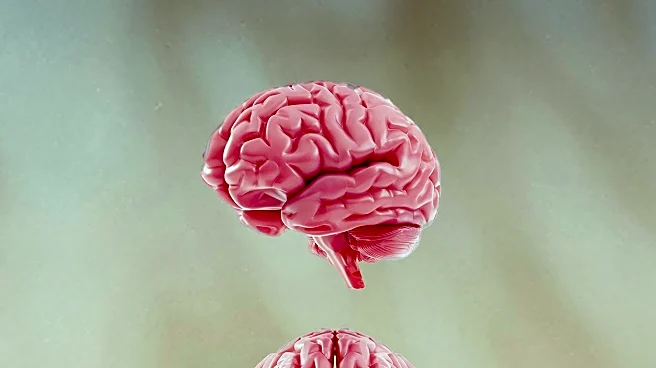What's Happening?
A study conducted by researchers at Virginia Tech has identified a brain circuit that links early-life trauma to increased risks of aggression and self-harm. The research, published in Science Advances,
found that trauma enhances activity in calcium channels within a neural circuit connecting the nucleus reuniens and hippocampus. This hyperactivation predisposes individuals to impulsive behaviors and self-injury. The study provides a mechanistic explanation for how trauma, pain sensitivity, and maladaptive behaviors are interconnected, offering potential pathways for targeted treatments for trauma-related disorders.
Why It's Important?
The findings have significant implications for understanding the neurobiological roots of aggression and self-harm, particularly in individuals with a history of early trauma. By identifying the specific brain circuits involved, the research moves beyond self-reported data, providing a scientific basis for developing targeted therapies. This could lead to more effective treatments for trauma-related disorders, potentially reducing the prevalence of these behaviors and improving mental health outcomes.
Beyond the Headlines
The study highlights the importance of addressing the underlying brain dysfunction caused by trauma, rather than just the symptoms. By focusing on the neural pathways involved, researchers can develop interventions that target the root causes of aggression and self-harm. This approach could lead to more comprehensive and effective treatments, ultimately improving the quality of life for individuals affected by trauma-related disorders.









